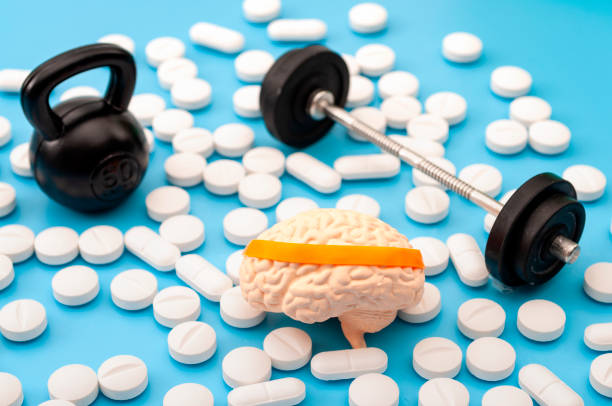Brain Booster Supplements: Ingredients, Effects, and Safety
Brain booster supplements are dietary products marketed to support brain health, memory, focus, and overall cognitive function. People take them to address age-related changes, occasional lapses in concentration, or to support demanding periods of learning or work. Evidence varies by ingredient and individual factors, so understanding mechanisms, research, and safety considerations helps set realistic expectations.

This article is for informational purposes only and should not be considered medical advice. Please consult a qualified healthcare professional for personalized guidance and treatment.
What are brain supplements and how do they work?
Brain supplements is a broad category that includes vitamins, minerals, herbal extracts, amino acids, and nootropic compounds. Many aim to support neurotransmitter production, protect neurons from oxidative stress, or improve blood flow to the brain. Common mechanisms include supplying precursors for neurotransmitters (for example, choline for acetylcholine), modulating inflammation, or enhancing cellular energy via mitochondrial support. Results tend to be subtle and depend on baseline nutritional status, dose, and the specific ingredient.
How do supplements affect cognitive function?
Cognitive function covers skills such as attention, processing speed, reasoning, and working memory. Some supplements show modest benefits in controlled trials for particular cognitive domains, especially in people with deficiencies or mild impairment. For instance, omega-3 fatty acids and certain B vitamins have been studied for their roles in maintaining neural integrity. However, large, long-term trials often show mixed outcomes, and many positive findings are small or limited to specific populations. Expect incremental changes rather than dramatic improvements.
What does research say about supplements and memory?
Memory is frequently cited as a target for brain supplements. Ingredients with the strongest research backing for supporting memory include omega-3s (DHA/EPA) and herbal compounds such as Bacopa monnieri in some studies. Antioxidant nutrients like vitamin E and compounds that support vascular health can also play a role, particularly when memory issues are linked to poor circulation or oxidative stress. It’s important to review study quality: some trials use small samples, short durations, or varying formulations, so conclusions should be conservative.
Which supplements are commonly used to support focus?
Supplements commonly promoted for focus include caffeine, L-theanine, ginkgo biloba, rhodiola, and certain B vitamins. Caffeine can temporarily increase alertness and attention; when paired with L-theanine it may reduce jitteriness while preserving cognitive benefits. Other botanicals like rhodiola are investigated for fatigue reduction and sustained attention, though evidence is variable. As with memory-related supplements, effects on focus are often modest and may depend on individual differences such as sleep, stress, and baseline nutrient levels.
Safety, dosing, and interactions to consider
Safety is a key consideration. Supplements can interact with prescription medications (for example, ginkgo with blood thinners) and some ingredients carry risks at high doses (niacin can cause flushing, excessive vitamin E has been studied for potential risks). Quality and purity vary between manufacturers; contaminants and inaccurate labeling have been reported for some products. Pregnant or breastfeeding people, those with chronic conditions, or people on multiple medications should consult a healthcare professional before starting a supplement. Start with recommended dosages and monitor for side effects.
Conclusion
Brain booster supplements include a diverse range of ingredients that may provide modest support for memory, focus, and broader cognitive function, especially when deficiencies or specific health issues are present. Evidence quality varies by ingredient and population, and benefits are not guaranteed. Prioritizing a balanced diet, adequate sleep, physical activity, and management of medical conditions remains the foundation for cognitive health. When considering supplements, evaluate scientific evidence, product quality, and potential interactions, and seek personalized advice from a qualified healthcare professional.






